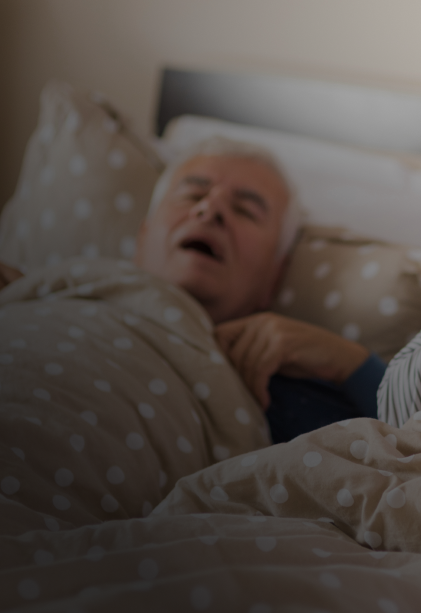• Frequent awakenings
• Breathing pauses (sleep apnea)
• Morning dry mouth
• Irritability & mood changes
• High blood pressure

Causes: Airway obstruction due to relaxed throat muscles, nasal congestion, obesity, or sleep position
Risk Factors: Being overweight, smoking, alcohol use, nasal allergies, or sleeping on your back
Tests: Sleep study (polysomnography), home sleep apnea test, and a physical examination of the airway
Medications: Nasal decongestants, allergy medications, or CPAP therapy if related to sleep apnea
Lifestyle: Weight loss, avoiding alcohol before bed, changing sleep position, and using nasal strips
- Sleep on your side instead of your back
- Maintain a healthy weight to reduce airway obstruction
- Use a humidifier to prevent nasal dryness
Q: Is snoring always a sign of sleep apnea?
A: Not always, but loud, frequent snoring with breathing pauses may indicate sleep apnea.
Q: Can snoring be cured?
A: Lifestyle changes and treatments can significantly reduce or eliminate snoring.